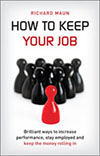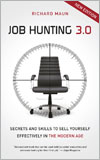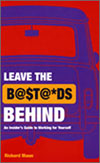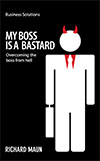better business blog
Tips and stories to add value to you and your organisation

When Is It Okay Not To Practise?
I thought I’d pose this question because last week I was working with a client the day before she had a job interview.
When I asked if she’d like some time to practise her interview answers together she laughed and said ‘no, that wouldn’t be necessary.’
…Apparently she was a confident interview candidate and had taken part in many ‘good’ first and second interviews before.
This was worrying.
Worrying, because if someone thinks they’re okay when they’ve had lots of interviews, they’re missing the point: They’re supposed to get a job.
Having lots of interviews can mean that they have a great CV, but tend to under-perform in some way when put under pressure. People shelter under the notion that lots of interviews must mean they’re doing something right. Wrong. It’s a warning signal that they’re stumbling somewhere and need help to find out why.
I chatted all this through with the client and she laughed again, in a hollow kind of way, that suggested I was right. We did a little demo interview and sadly I was. However, after a sharp 30 minutes of practise-review-practise-review she was much improved and could now:
1) Keep her answers to about 60 seconds. Any longer and it’s called ‘waffle’.
2) Include numbers in her answers. Numbers tell the story for you and show the scope and scale of the good work you have completed.
3) Answer the question. A common question for a manager to be asked is: ‘When have you overcome resistance?’ A snappy answer using the STAR technique is a great way to impress, so learn to anticipate common questions and rehearse your answers, because it will help to reduce the pressure you’re under and to increase your ability to clinch a job.
With the STAR approach all you do is STate the issue, talk about the Actions you took (I, not We here)* and finally outline the positive Results for you and the organisation.
So, going back to the question in the title, the answer is, of course: Never.
It’s a trick question really, as there is never an interview, speech, presentation, debate or sales pitch that isn’t improved by a bit of practise.
So, as you look ahead to your work over the next two weeks… What do you need to practise for?
Go for it!
*Talk about ‘what I did was…’ because they’re not interviewing the team. They’re just interviewing you. Hiding behind ‘what we did was…’ looks woolly and your contribution is hard to spot.
Tags: Job Hunting
e-publishing
Click icon for details


recent posts
browse archive
books
Click cover to view details on Amazon

How to Keep Your Job
Brilliant ways to increase performance, stay employed and keep the money rolling in
Published 2011 Marshall Cavendish
208pp

Job Hunting 3.0
Secrets and skills to sell yourself effectively in the Modern Age
Published 2010 Marshall Cavendish
260pp

 RSS
RSS



